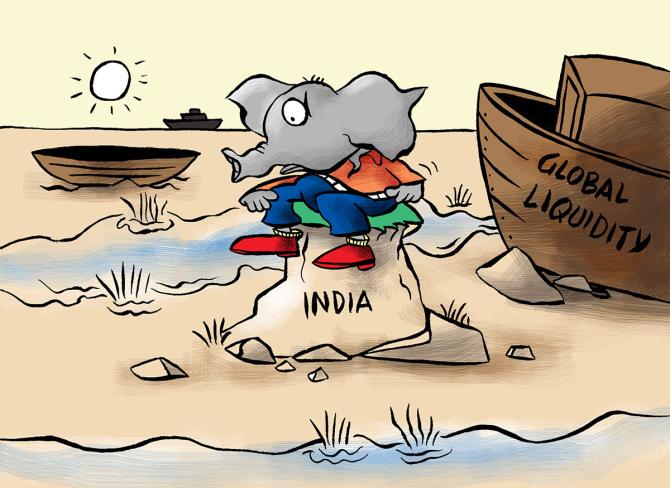Within three trading sessions in May, foreign portfolio investors (FPIs) have pumped in Rs 9,461 crore into Indian equities.

This follows net inflows worth Rs 7,936 crore in March, and Rs 11,631 crore in April.
The trend, analysts said, could continue going ahead as the US Federal Reserve may soon halt its interest rate hike cycle, which will strengthen foreign fund inflows into emerging markets, including India.
"With Wednesday’s 25-basis point rate hike, the real interest rates in the US have turned positive.
"While an elongated pause will be positive for global equities, India is expected to benefit the most amid reasonable valuations, migration of FPIs from India to China reaching peak, and high return of equity (RoE) and earnings growth visibility,” said Manish Jain, Coffee Can Fund Manager, Ambit Asset Management.
Besides India, analysts expect Indonesia, Thailand, and China to attract foreign portfolio investment flows.
"A sustained, strong economic recovery in China should benefit Hong Kong as well as its regional peers, such as Thailand and Indonesia, in terms of tourism, consumption, investments, and supply chain relocation," wrote analysts at HSBC in a recent note.
Against a likely slowdown in the global economic growth, India is likely to grow at 6.5-7 per cent in FY23/24.
Besides, peaking of domestic inflation and interest rates, and reduction in the current account deficit keeps India better placed than other EMs.
Also, a reversal of monetary policy tightening by the US will keep dollar gains in check, generating higher returns for FPIs in dollar terms.
The US dollar index has dropped 2.4 per cent YTD, while the rupee has appreciated 1 per cent during the period.
Shiv Sehgal, who is president and head at Nuvama Capital Markets, further, expects that the US economy and the global financial markets to increasingly experience the lag-effects of the US Fed’s aggressive tightening in months ahead.
"Troubles at Silicon Valley Bank, First Republic Bank, Signature Bank, and PacWest Bank highlight mounting distress in the commercial real estate in the US, growing illiquidity, and the accelerating signs of credit contraction.
"These signs illustrate risks that developed markets face," he said.
A recent Bloomberg survey predicted 0 per cent probability of India falling into recession among Asia-Pacific countries in 2023.
While Indonesia has 2 per cent chances, China has 12.5 per cent probability of seeing recession this year.
Among developed countries, the UK has 75 per cent probability, New Zealand 70 per cent, the US 65 per cent, and Germany and Italy 60 per cent each.
Against this backdrop, Amit Gupta, Principal Officer and Fund Manager, PMS, ICICI Securities, sees Nifty50 moving towards 21,000 over the medium-term, which is roughly 17 per cent upside from current levels.
"Though the global macro headwinds could keep the markets range-bound in the near-term, the underlying tone in India is quite robust, with FPI inflows improving and private capex picking up in Q4FY23," he said.
He expects sectors such as capital goods, power, sugar, banks, industrials, building materials and fluorine chemicals to benefit from FPI inflows.
Domestic economy-oriented sectors like financials, real estate, industrials, and domestic auto should find interest amongst FIIs, added Shiv Sehgal of Nuvama Capital Markets,











